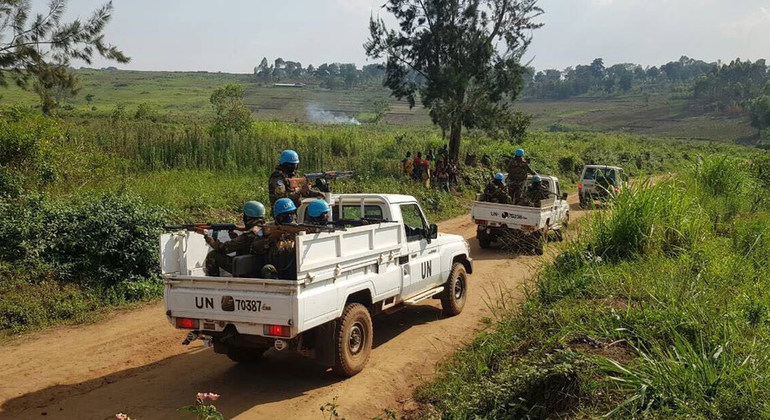The violence killed four workers responding to the Ebola outbreak and injured five others, at a camp in Biakato Mines, and an Ebola response coordination office, WHO said in a statement.
For the UN agency, which appealed for the “constant” attacks to stop, the development risks reversing significant progress made against the epidemic, with infections falling to just a handful in recent weeks.
‘We are heartbroken’: WHO chief
“Attacks by armed groups in Biakato Mines and Mangina in DRC have resulted in deaths and injuries amongst Ebola responders,” WHO Director-General Tedros Adhanom Ghebreyesus said on Twitter. “We are heartbroken that our worst fears have been realized. Our focus is caring for the wounded and ensuring staff at other locations are safe.”
Echoing that message, Dr Matshidiso Moeti, WHO Regional Director for Africa said that her “heart goes out to the family and friends of the first responders killed in these attacks”.
“We are doing everything possible to bring the injured and front-line workers in the impacted areas to safety,” she said in a statement, before insisting that “these constant attacks must stop”.
On his Twitter account, UN Emergency Ebola Response Coordinator David Gressly expressed his sympathy for the families of the victims of the attacks in Biakato and Mangina, “but also to all the families of the recent escalation of violence in the region”.
According to WHO, the victims included a member of a vaccination team, two drivers and a police officer. No WHO staff were among those killed but one staff member was injured. Most of the other injured people are from the Ministry of Health, the agency noted.
We are heartbroken that our worst fears have been realized. Our focus is caring for the wounded and ensuring staff at other locations are safe. Tedros Adhanom Ghebreyesus, WHO Director-General
Hundreds of attacks on health workers and communities
Attacks on healthcare workers, treatment centres and communities have been a frequent feature of this latest Ebola outbreak in Ituri and North Kivu provinces that began in August 2018 and which is the second largest on record.
The latest violence comes as people in eastern DRC continue to be targeted by armed groups, with at least 19 people reportedly killed on Wednesday by Allied Democratic Forces (ADF) in a village in Oicha, near Beni.
In its latest update on the outbreak, the country’s Ministry of Health noted the “disruption of (health) activities in the sectors of Beni and Butembo, following popular demonstrations at the killing of civilians”.
On Tuesday, personnel were temporarily relocated from Beni, WHO said in its latest situation report, “though most remain in place to continue responding”.
Earlier this month in the town of Lwemba, Ituri province, attackers killed an Ebola response community health worker and left his wife critically injured before burning down their home. The victim was also a reporter for a community radio station, helping to raise Ebola awareness.
Since the start of the year, WHO has documented more than 300 attacks that have caused six deaths and 70 injuries to health care workers and patients.
Multitude of armed groups
The insecurity has been attributed to the multitude of armed groups in eastern DRC – estimated at around 100 – and WHO has warned that it has significantly complicated the work of the authorities and partners attempting to eradicate the disease by tracing and vaccinating those who have come into contact with infected individuals.
According to DRC authorities, 2,198 people have died from the Ebola epidemic to date out of more than 3,300 confirmed cases, while more than 1,000 have recovered.
It is the country’s 10th outbreak of Ebola, and transmission is still occurring in Mandima, Mabalako, Oicha, and Beni health zones, albeit at a very low level compared with the peak of the outbreak in April, when there were over 120 cases a week.
“Ebola was retreating. These attacks will give it force again, and more people will die as a consequence,” said Dr Tedros. “It will be tragic to see more unnecessary suffering in communities that have already suffered so much. We call on everyone who has a role to play to end this cycle of violence.”



